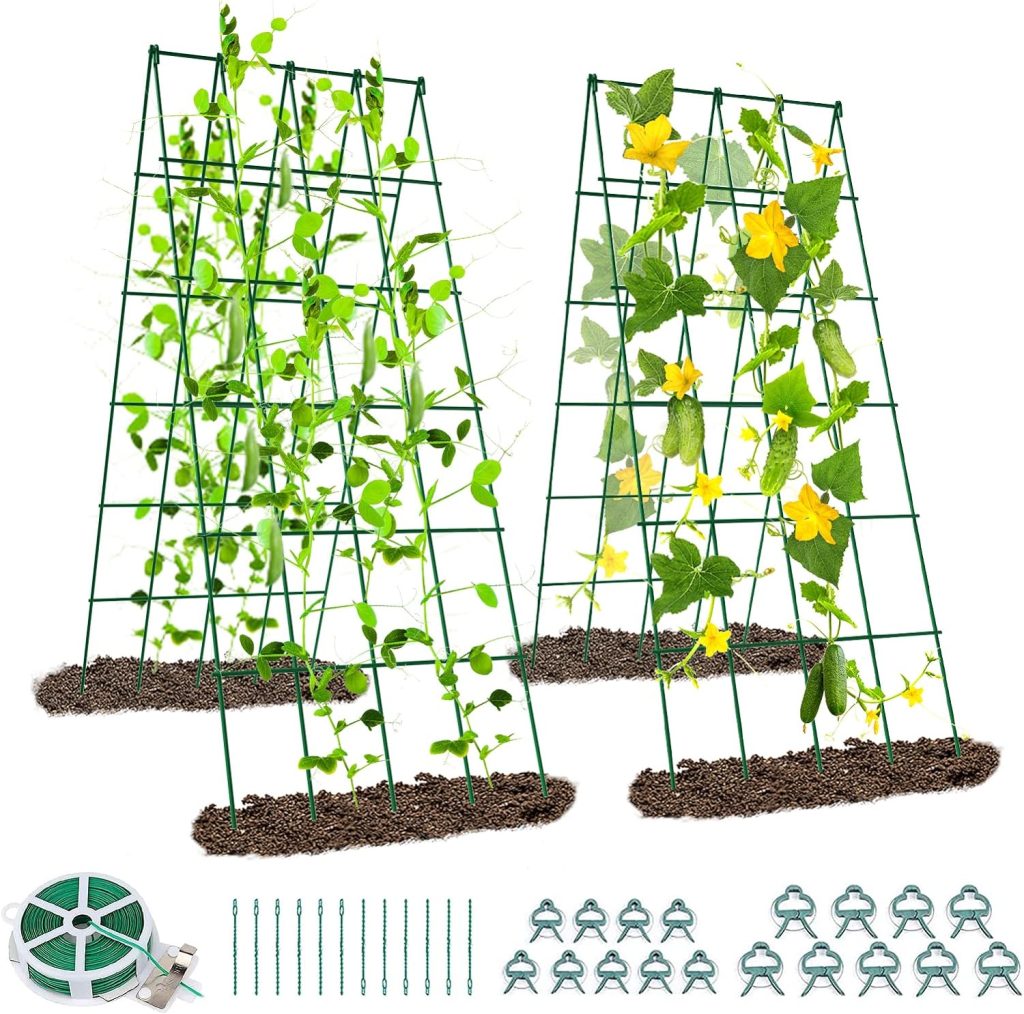Plant Trellis
*As an Amazon Associate, I earn from qualifying purchases. Please see our disclosure to learn more.
A plant trellis is a structure used to support climbing plants, vines, or any plant that needs support to grow upward. Trellises come in various designs and materials, such as wood, metal, or plastic, and can be purchased ready-made or built DIY-style.
Plant trellises serve multiple purposes, including maximizing garden space, enhancing visual appeal, and providing support for plants to grow vertically, which can improve air circulation and access to sunlight. They are particularly useful for growing vegetables like tomatoes, cucumbers, and beans, as well as flowering vines like morning glories, sweet peas, and climbing roses.
Different Types
Here are some common types of plant trellises:
- Wall-Mounted Trellis: You can attach these to a wall or fence to provide a vertical surface for plants to climb. They often have a grid or lattice design.
- Freestanding Trellis: These are standalone structures that you can place anywhere in the garden or yard.
- Arbor or Pergola: These are larger structures that typically have a roof-like top and open sides. You can use this to train vines and climbing plants to grow over the top and along the sides, providing shade and decoration.
- Obelisk: This is a tall, narrow structure often used for supporting plants like roses or clematis. It usually has a pointed or pyramidal top and provides a focal point in the garden.
- A-frame Trellis: This type of plant trellis resembles the shape of the letter “A.” It is useful for supporting plants in containers or raised beds.
- Trellis Netting: Trellis netting is a versatile and flexible material used to support and train climbing plants. It consists of a grid or mesh pattern typically made from materials like nylon, polyethylene, or polypropylene.
Buying A Plant Trellis
When purchasing a plant trellis, consider the size and strength needed to support your plant’s growth adequately. Ensure the material is durable and weather-resistant (especially for outdoor use). Additionally, look for adjustable or customizable features to accommodate various plant sizes and shapes.

